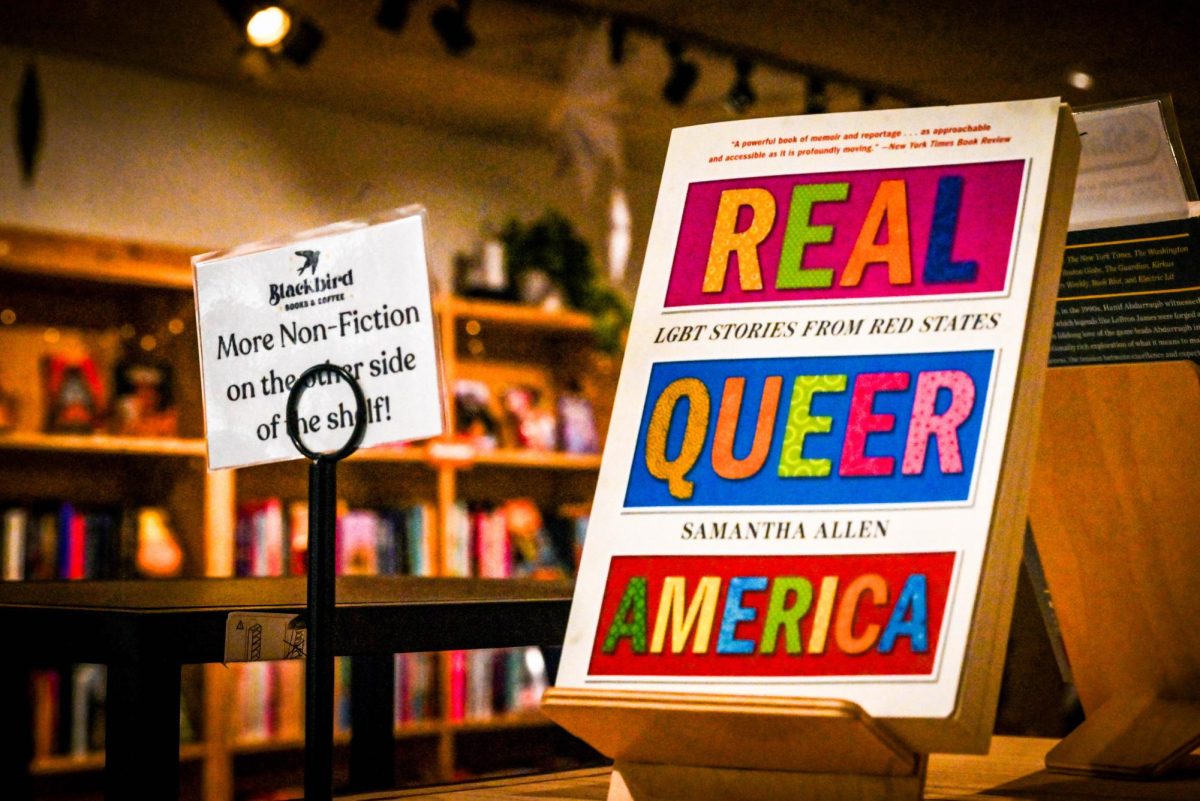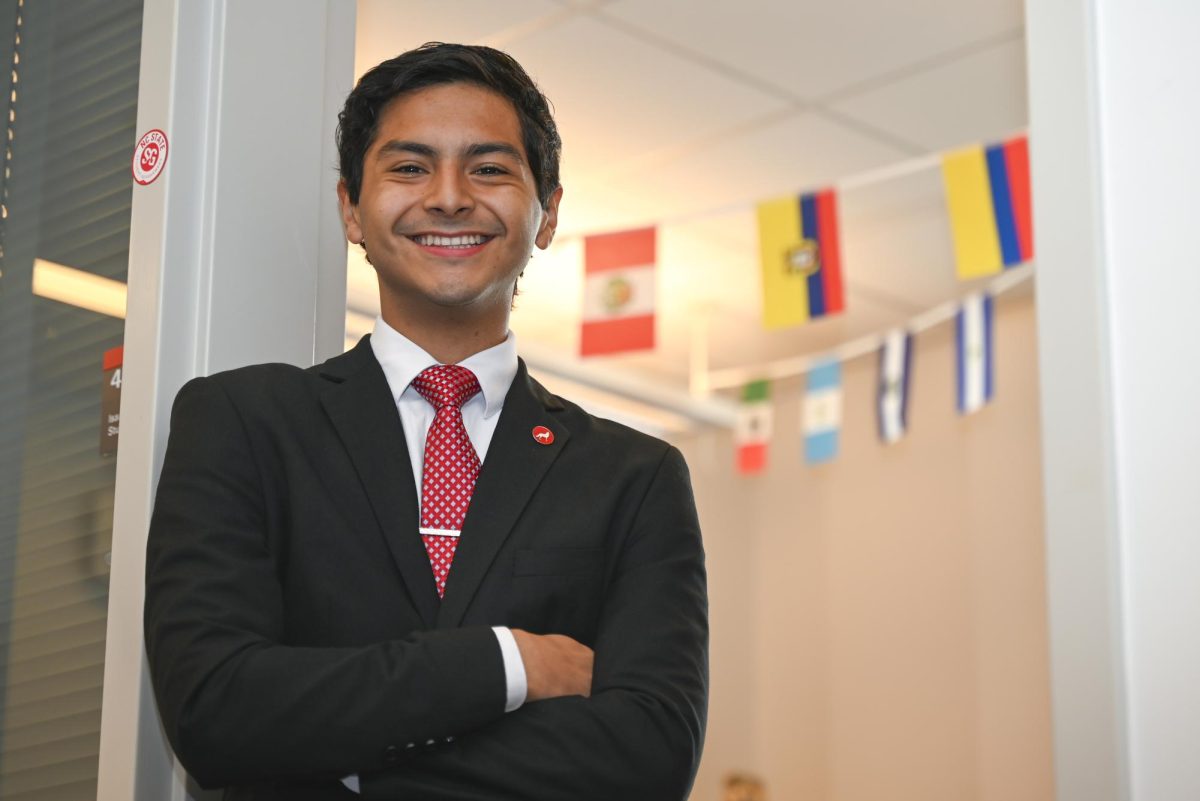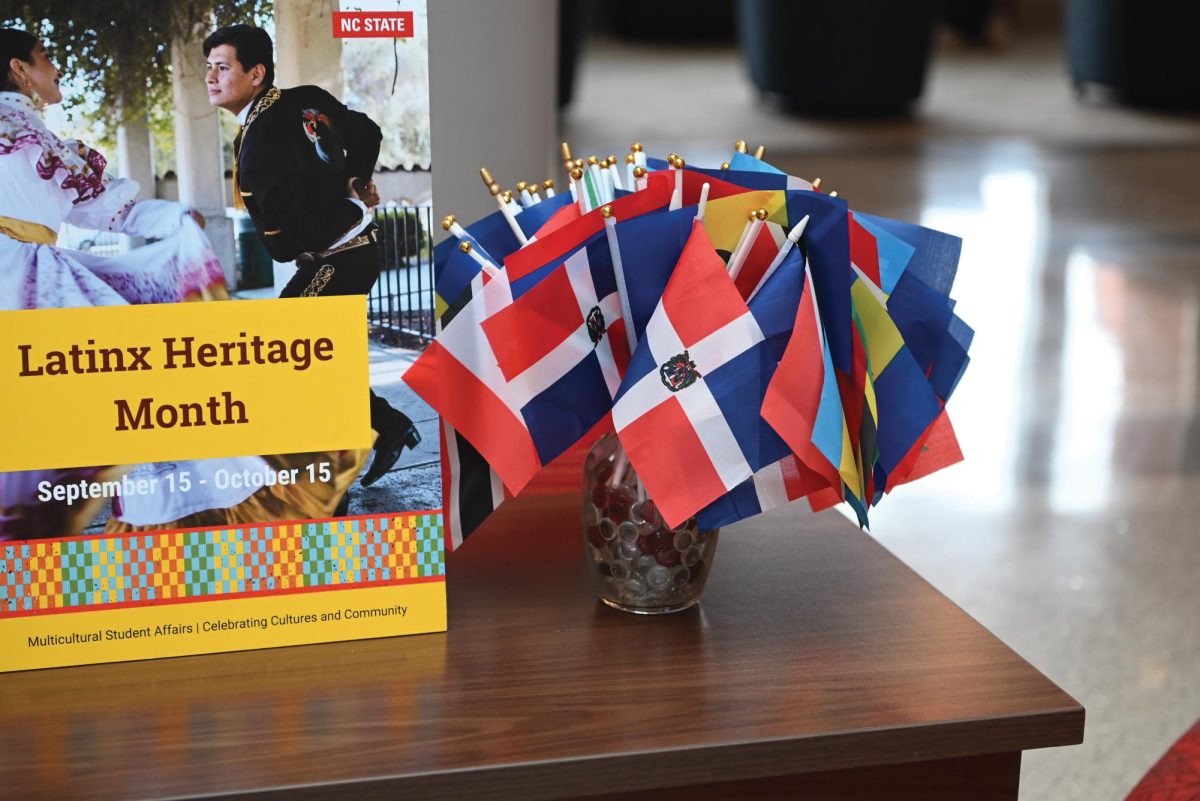NC State MFA student Emilio Cabral first encountered queer literature in high school, reading “Simon vs. the Homo Sapiens Agenda” by Becky Albertalli and finding himself hiding queer-themed books from his parents as a teenager. Now, a fiction writer drawing from his Dominican American roots and Southern upbringing, Cabral is part of a growing community of queer writers and readers in Raleigh.
“I’d say the things that I write about the most is queerness and just that kind of immigrant experience, and a lot of times how that overlaps,” Cabral said. “I’ve kind of made it my mission every year to kind of read as much of that kind of literature as possible, just to inform my own writing.”
As a graduate student at NC State, Cabral said the MFA program and English department are places where queer writing is welcomed and supported.
“I have never felt unsafe or not supported,” Cabral said. “Many of us are queer, but it’s also just in general, I think the English department and the creative writing department in general, when you understand the art, you kind of understand that stories need to be what they are.”
Cabral described a shift in queer literature from coming-out stories that dominated the early 2000s to a broader range of narratives including books about relationships, intersectionality and community. He pointed to Last Night at the Telegraph Club by Malinda Lo, What If It’s Us by Adam Silvera and Becky Albertalli and short stories by Carmen Maria Machado as representative of this evolving landscape.
Cabral said book bans and tightening access to queer YA novels mean many young people, like his younger self, seek out what they can find, sometimes turning to adult books because they are the only available option.
“So many queer books might be banned for kids or banned in school libraries,” Cabral said. “So we then have to search up books that perhaps are a different content level.”
This trend of banning books and rising censorship has sparked concern among local bookstore owners. Chris Tenneli, co-owner of So & So Books near downtown Raleigh, said the shop makes it a priority to stock queer literature and platform local authors.
“We want to provide a platform for a wide range of voices, including queer voices, both, from the author side, we want those voices to be heard, but we also want our community members who want to hear voices like their own on our shelves,” Tenneli said. “We want them to feel comfortable in our store and that they’re going to get something that speaks to their experience, if that’s what they’re looking for.”
For So & So, curation is more than commerce. It’s about visibility and belonging.
“I think how you curate books sends a message about your values and whatever community you’re not stocking, sends a pretty clear [message]; it might be unintentional, but I think, as a curator of anything, but in our case, books, we want to send the message to our community that their voices are being heard, and they’ll find voices that represent their experience,” Tenneli said.
Tenneli said Raleigh is fortunate to have a supportive “bubble,” but even here, queer students and readers appreciate having a place to gather and find themselves on the shelves.
“I think it’s probably more important in places that aren’t a bubble. We’re lucky in that we have a little bubble here, you know,” Tenneli said. “Our local government, our city council, for example, our governor, they’re very supportive.”
The relationship between So & So Books and NC State is close, with dozens of literary events featuring students and faculty members. Tenneli said the MFA program is a consistent pipeline for new queer voices.
“The MFA program is also a fantastic platform for queer literature, and has been for probably a decade or more now,” Tenneli said.
NC State English professor Rebecca Walsh said the academic study of queer literature at NC State centers on challenging assumptions about gender and sexuality and making room for LGBTQ+ stories from different times and cultures. She said that “any literature that troubles our received notions of sexual orientation and gender and even biological sex” falls into this category.
Walsh referenced important literary figures and titles she teaches, including Gertrude Stein’s “Tender Buttons,” Bruce Nugent’s “Smoke, Lilies and Jade,” Oscar Wilde’s “The Picture of Dorian Gray” and the “Calamus” poems by Walt Whitman. She also highlighted science fiction writers Samuel Delany and Ursula K. Le Guin as pushing beyond the boundaries of gender and sexuality in imaginative ways.
“So there are different pressures as well as different opportunities when you take into account other aspects of identity and how those all come together,” Walsh said. “When I teach the Harlem Renaissance, for instance, that is such a rich, generative moment in history and geographical space for creating a sense of safety and also a sense of experimentation, and that’s very dependent upon a combination of gender, sexuality, class and race.”
Walsh said queer literature isn’t just for LGBTQ+ readers. It expands the realm of literary possibilities for everyone.
Walsh noted that, despite controversy, queer writers have always been pushing literary boundaries, often in subtle ways. Books once coded or censored are now owned as part of queer literature’s lineage.
“We try to be careful, I think, as scholars, to not impose on the past labels that we use now or understandings that we have, and try to recognize what was historically pertinent at the time, but while still kind of reading that through what we think of as layers of censorship and, you know, accounting for homophobia so that we can make it legible for readers today,” Walsh said.




